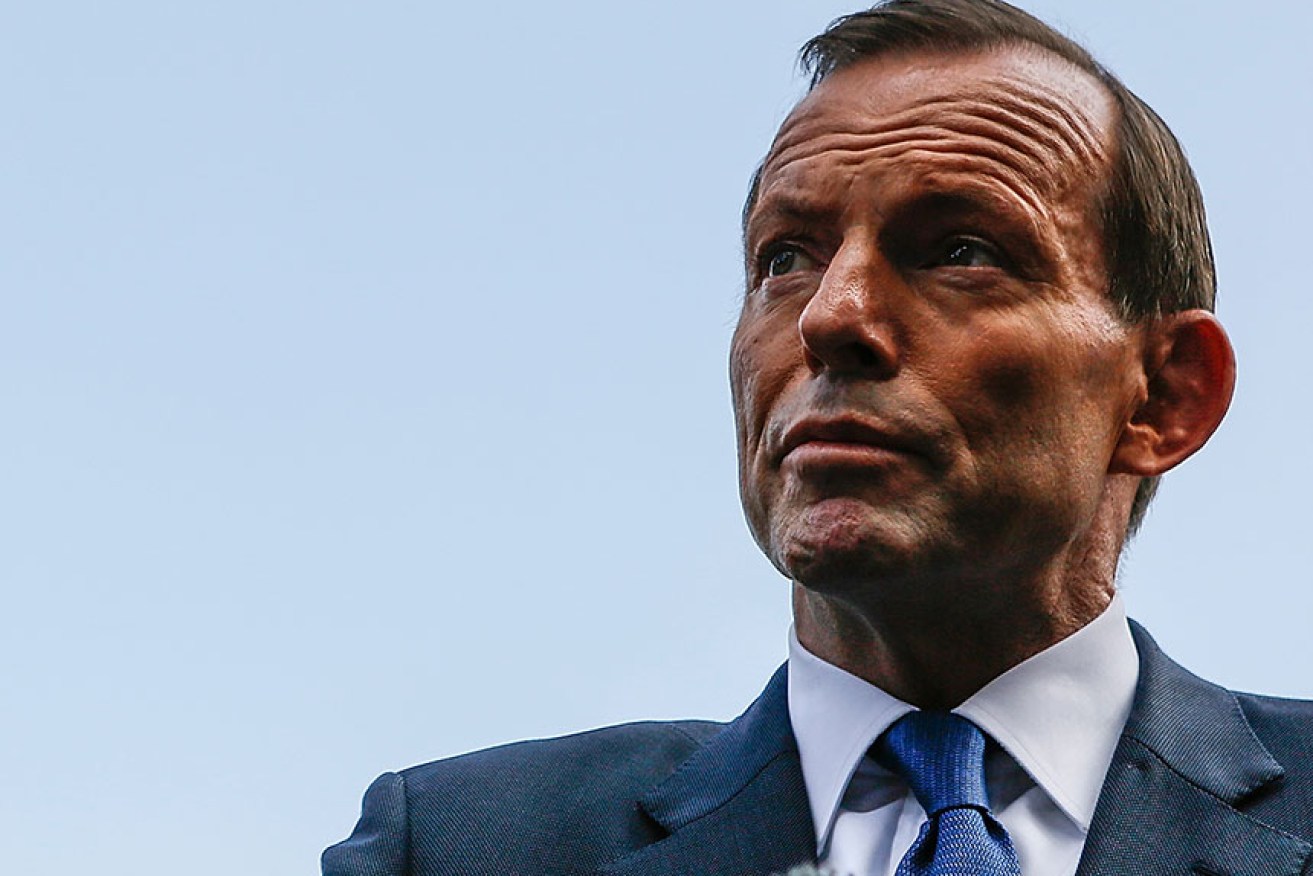Ups and downs: Abbott’s first year

While the Prime Minister and a small coterie of senior ministers – most notably Julie Bishop – have notched up impressive successes on the global stage, the Coalition has stumbled through its domestic agenda.
Hardline ideology has too often replaced hard-headed pragmatism. The list of broken promises has been damaging to the Government’s credibility and backbench.

The Abbotts on election night.
Backbench MPs privately are scathing about the performance of key Cabinet figures.
• Tony Abbott’s first year in power in 18 quotes
• How ‘Team Australia’ is hurting our young people
• Canberra never looked so dangerous as in ‘The Mandarin Code’
The government enters its second year behind in the polls, but showing signs of turning around sentiment after what’s been a shaky first 12 months.
The defining moments of this first year have largely been outside Abbott’s control: the downing of MH17 in Ukraine, the rise of Islamic State and its threat to the West, the emergence of Palmer United Party and a surly Senate.
It failed to do the necessary pre-budget marketing to soften up the electorate for a series of ‘harsh’ measures.
The rise of Clive Palmer and his PUP edifice caught the Government off-guard. Mr Abbott and key members of his team initially acted with belligerence towards the Queenslander, and it’s only been more recently that a more sensible relationship’s been achieved.
Last week’s repeal of the mining tax – after a compromise deal was thrashed out between the Government and Palmer – might be a landmark moment in the politics of this parliament. It highlights what can be achieved when egos are parked at the door, when clashing political interests are united behind a common cause.

Surprise power player Clive Palmer.
It was more apt that Treasurer Joe Hockey and Clive Palmer were filmed seated together in the Senate as the red chamber voted to throw out Labor’s tax on the resources sector. This sent a powerful message to those who’ve been critical of the Coalition’s scrappy first year; that big-ticket reform can be achieved in the face of strident opposition from Labor and the Greens.
As well the PM can point to the scrapping of the carbon tax and the absence of boats carrying asylum seekers as two key achievements that he promised the Australian people.
Fair enough, but the Government still has plenty of work to do to persuade cross-bench senators to pass its main budget reforms. Certainly it has yet to convince a sceptical public that these measures are absolutely necessary.
This then has been the main failing of the Abbott Government during its first year. It failed to do the necessary pre-budget marketing to soften up the electorate for a series of ‘harsh’ measures: the Medicare co-payment; deregulation of higher education fees; welfare reform; lifting the pension age to 70.
The Government still has plenty of work to do on these and other key reforms stuck in a parliamentary gridlock. Senior ministers are hopeful they can leverage last week’s success on the mining tax to also secure passage of its main budget changes. We will see.

Australian Foreign Minister Julie Bishop.
But while the domestic agenda has been patchy the Government has notched up a series of successes on the international stage. Bilateral trade agreements with Japan and Korea – cemented by Trade Minister Andrew Robb – may point to a more significant pact, with China.
As Foreign Minister, Julie Bishop has been outstanding and ends the first year as the Coalition’s best performer. No wonder so many of her Liberal colleagues are, quietly, talking up her leadership prospects for the future.
Despite appearing a little too eager to join the global fray from time to time, Mr Abbott too has performed well when it comes to foreign policy.
“While the domestic agenda has been patchy the Government has notched up a series of successes on the international stage.”
The PM struck the right tone at the twin tragedies of Malaysian Airline’s flights MH370 and MH17. Ironically he is also benefiting from our membership of the United Nation’s Security Council, a campaign started by Kevin Rudd and which was criticised by the Coalition.
The Prime Minister starts his second year in power with some challenges: He needs to soften some of the hardline policies that have alienated so many. He needs to avoid the blunders that have tarnished the Government’s reputation in its first year. He needs to elevate more women into his frontline ministry.
If he can achieve these, persuade the Senate to pass further reforms, and enhance his commander-in-chief image, then the PM will have taken a big step towards securing a second term.
Steve Lewis has 22 years experience reporting Canberra politics, and is a senior adviser with Newgate Communications. He is also the co-author of the political thriller, The Mandarin Code, and the best-selling The Marmalade Files.







